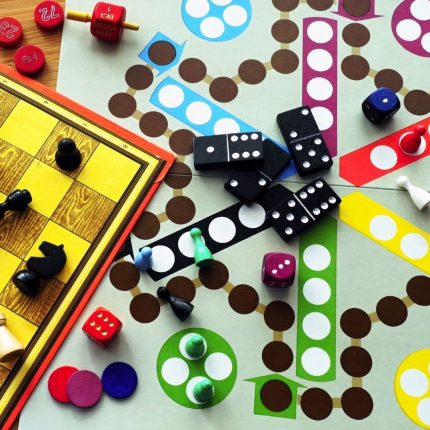
Gameschooling Benefits for the New Homeschooler
March 25, 2020Growing up homeschooled, my mother made certain that real-world learning experiences were at the foundation of our core curriculum. While part of the day was spent solving algebraic expressions, reading novels, and conducting science experiments, the afternoon was dedicated to gaming. More specifically, playing chess and using this “board game” to support our academic and social goals. Chess provided each of us with specific tools we now use to help guide our career paths. For those who don’t play, chess is a strategic game that supports critical thinking, problem-solving, and concentration.
For new homeschoolers, it’s important to know that education is drastically changing. The tools we used when homeschooling years ago are now being used in traditional classrooms everywhere. These innovative practices are being brought to light now with national organizations like Remake Learning and Education Reimagined. Gaming is one of those practices that started with homeschooled students and is now being used globally.
There are various articles about the benefits of gaming available, as well as hundreds of research studies conducted across all gaming platforms. However, this article is here to outline benefits specifically for homeschooled families. Gameschooling allows families to take the lessons taught and bring them to life via fun and engaging activities.
Gameschooling encourages students to learn and experiment with application-based practices. The key components of any lesson plan include some sort of exploration or practice time after being introduced to a new subject. By using games in collaboration with schoolwork, students make a connection and will cognitively associate learning with enjoyable kid activities.
Any game has clear and evident outcomes. For example, the goal of chess is to checkmate your opponent’s king. When goals are outlined and expectations are set at the beginning, students feel confident and are ready to play. In addition, the outcomes of the game can match your lesson plan outcomes. If a student learned about coordinate planes and adding or subtracting, they could be tasked with adding how many points each of their chess pieces is worth as well as the name of each chess coordinate. Studies show that when students can apply connections to what they are learning, they are more likely to understand the subject. Gameschooling is all about applied learning!
Gaming also offers students with empowerment through knowledge rather than grades. While getting As and Bs are important, understanding content and being able to apply that to their own interests and everyday skills are practical. Often, students fall sort after graduation because they haven’t been able to really take what they learn in school and apply it to their passions. Gaming is individualized and tailored to the student.
There is always concern about homeschoolers’ opportunities to socialize with other kids. Gaming is often a group activity. Once my siblings and I learned chess, we would go to chess tournaments and compete. We made so many friends by taking part in the chess community. Don’t forget that gaming, like sports, is competitive! Students can use gaming as one of their extracurricular activities.
If you are new to homeschooling, incorporate game theory into your curriculum book. The benefits are enormous, and it’s fun!
Top 5 Pieces of Advice on Gameschooling for Home Educators:
- Learn the game first,
- But be upfront with students that you are learning together.
- Practice understanding the instructions together.
- Ensure each student understands the basics of the game first. When instructions are unclear, the desired outcomes aren’t achieved.
- The lesson instructional material, the better. Don’t have various books or google searches out about the game. Instructors sometimes make that mistake with chess.
Top 5 Pieces of Advice on Gameschooling for Students:
- Try different games. The first one might not be your favorite!
- Learning the game takes time. Give yourself the space to understand the instructions and ask questions.
- If you have a passion (be it writing, video games, or drawing), tell your educator! These passions can be incorporated into something really special.
- Apply! Apply! Apply! Make sure you take what you have been learning and apply it to your game. Don’t be shy when making comparisons between everyday life actions and something you are playing.
- Have fun!
More About Ashley Lynn Priore
 Ashley Lynn Priore is a Pittsburgh native and a current undergraduate at the University of Pittsburgh, majoring in English and Philosophy & Politics with a minor in Economics. An award-winning and nationally ranked player under the United States Chess Federation, Ashley is a competitive chess player, politics enthusiast, writer and poet, social entrepreneur, and public service scholar.
Ashley Lynn Priore is a Pittsburgh native and a current undergraduate at the University of Pittsburgh, majoring in English and Philosophy & Politics with a minor in Economics. An award-winning and nationally ranked player under the United States Chess Federation, Ashley is a competitive chess player, politics enthusiast, writer and poet, social entrepreneur, and public service scholar.
Ashley is also the founder and CEO of The Queen’s Gambit Chess Institute. In 2019, Ashley entered politics and was a candidate for Pittsburgh Board of Education, District 4. A catalyst for change who started her own business at the early age of 14 years old, Ashley seeks to empower all to use their passions for good. Read more of Ashley’s articles on Homeschool.com here.
Latest Posts

As homeschooling continues to grow in popularity, more parents are taking on the challenge of providing a comprehensive education that not only meets academic standards but also prepares their…
Read more >
June has come and gone, and summer is in full swing! Whether you're traveling this summer or staying close to home, we hope you're enjoying this time with your family. We wanted this month's…
Read more >
Summer is an all-around favorite season for most people. In the U.S., it’s even more exciting for many of us since we get to celebrate Independence Day! The Fourth of July is a wonderful…
Read more >

